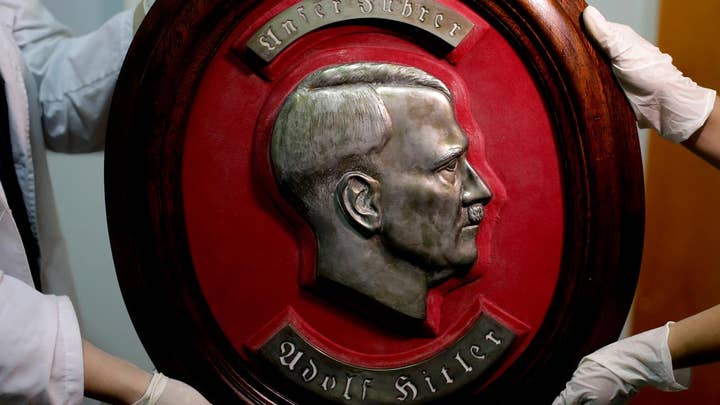Argentina's vice president narrowly escapes assassination attempt
Argentina's Vice President Cristina Fernández survived an assassination attempt, Sept. 1, 2022. (TV PUBLICA ARGENTINA via AP)
With "Argentina, 1985" earning accolades as one of the best films of 2022 (and for good reason), the real events that director Santiago Mitre covers hit very close to home. But the lessons learned from Mitre’s historical drama are applicable to everyone—not just Argentines like me.
"Argentina, 1985" dives into the events surrounding the 1985 "Trial of the Juntas," which prosecuted the ringleaders of Argentina’s most bloody military dictatorship. In 1976, the military junta overthrew the government of Isabel Perón—Juan Domingo Perón’s third wife—and ushered in the darkest period of Argentine history, leaving more than 30,000 people missing or dead. The "Juntas" executed a policy of persecution, systematically targeting people through murder, torture, and other human rights violations.
Argentina’s last dictatorship eliminated people like my paternal grandfather, Juan Domingo Salomón, a loyal Peronist who spoke out against the military dictatorship. In 1977, the police arbitrarily went to my grandfather’s house and arrested him. To this day, his whereabouts are unknown. He simply vanished—no one even knows the exact details of his arrest or the months that followed.
My grandfather was taken away because of his ideas and his words. He refused to stay silent as Argentina’s state and society crumbled around him. Leading up to his arrest, he condemned the violence associated with military force and stood firm against those who wielded it to seize power for themselves. The stories from the 1970s and 1980s in Argentina are more than just history lessons; they are lessons that can serve as warning signs and prescriptions for the future.
TOP FIVE OSCARS 2023 SNUBS: FROM TOM CRUISE TO JAMES CAMERON
The key takeaway from "Argentina, 1985"—and the real life it depicts—is to remain wary of and vigilant against a government that refuses to respect its citizens. Governments and regimes that undermine freedom and liberty are not to be trusted. In Argentina, the United States, or anywhere else in the world, society should never reach the point of military coup, and that requires a wary, vigilant citizenry reaffirming freedom and liberty daily. It requires citizens protecting the foundational pillars of democracy—especially the democratic transition of power, free speech, and rule of law.
The problems depicted in "Argentina, 1985" are still with us today. The violent riots led by Bolsonaro supporters in nearby Brazil represent an example of why people need to care for democracy and respect election results. And, of course, there is January 6, 2021 in the United States, where it became all too clear that American democracy is not immune to anti-democratic threats from violent actors and populist leaders who jeopardize one of the best liberty experiments in human history.
CLICK HERE TO GET THE OPINION NEWSLETTER
CLICK HERE TO GET THE FOX NEWS APP
Right now, Argentina is plagued by problems related to the lack of economic freedom and a weak rule of law. Annual inflation hovers around 100 percent—one of the highest rates in the world. My country is home to more than 3,000 labor unions, many of whom are in bed with government bureaucrats whose currency is corruption. At the same time, 55 percent of all registered workers are employed by the state, at the expense of private-sector entrepreneurship, innovation, and growth.
Our solution to such problems is a reduction in bureaucracy, protection of the rule of law, and promotion of free enterprise. The solution is freedom.
The overarching message of "Argentina, 1985" is "Nunca Más," or "Never Again." And that’s how we should all live our lives: Never again can we allow freedom, liberty, and people to suffer at the hands of the state.



